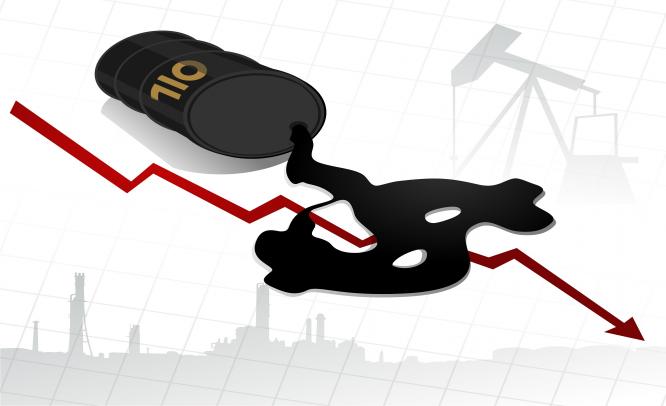Oil exporting economies, especially the poorer ones, are facing budget deficits
IFM Correspondent
April 1, 2016: Oil prices have been down for over a year now. However, even though most nations are net importers of oil, the world’s economy has not seen the kind of improvement that was expected. The scenario has puzzled many.
An IMF blog titled ‘Oil prices and the global economy: It is complicated’ says that over the past six months or more, equity markets have fallen in line with oil prices — not what one would expect if lower prices help the world economy on balance. Indeed, since August 2015 the simple correlation between equity and oil prices has been positive.
Maurice Obstfeld, Gian Maria Milesi-Ferretti and Rabah Arezki, economists at IMF, have written in their blog: “The lion’s share of the downward revision for global demand comes from oil exporters — despite their relatively small share of global GDP (about 12 percent). But domestic demand in oil importers was also no better than we had forecast, despite a fall in oil prices that was bigger than anticipated.”
John Hall, chairman, Alfa Energy, says there is usually a time lag of one to two years before one can see the impact of falling oil prices on a country’s economy. “However, having said that, the fact remains that unlike previous years, the world is today less dependent on oil than it was during the pre-2008 era. So, the time lag is still in its infancy and, perhaps, will not be as predominant as one would traditionally have expected,” he says.
Geoffrey Styles from GSW Strategy Group has something similar to share. “The energy required for a given increment of economic growth has fallen globally. Additionally, drop in oil prices has curtailed investments in oil-related equipment and its raw materials, negating the stimulus that the boom in such investment had provided”.
The situation in oil exporting countries, especially the poorer ones, is bad as well. Thanks to their overdependence on oil, these economies are in huge debt and hence are unable to borrow further to make public investments. Hence, capital spending has been cut and public investments are down as well.
“Low oil prices make exploration and extraction activities less profitable in the private sector, leading to lower capital expenditures there as well. According to Rystad Energy, the fall in global capital expenditure in the oil and gas sector amounted to about $215 billion between 2014 and 2015 — about 1.2 percent of global fixed capital formation (or just below 0.3 percent of global GDP). Even some oil importers have been hit hard, notably the United States, which accounts for a significant part of the global drop in energy-related investment,” states the blog by the IMF economists.
Also, one must remember that oil producing countries have used their sovereign wealth funds to invest overseas in both OECD and non-OECD countries. These funds are heavily dependent on oil wealth, which has impacted their ability to invest further. As a result, investments have been curtailed and are not forthcoming.
Though Iraq and Iran want to rebuild their infrastructure and hence are looking to invest, they are going slow when it comes to investments from their Western counterparts. “They do need the support of Western technology but the sources of those technologies are often seen as much as a threat to their existence. So investments will take place at a slow place. Additionally, there is much oil related debt around the world and with banks tied into this, investment loans are further restricted, creating financial uncertainty,” says Hall.
The IMF economists say that though oil importers have seen some positive effects of low prices, the impact has been much less than anticipated. “The situation for oil importers in the emerging and developing world is varied. Some of these countries have reduced fuel subsidies. True, governments’ improved fiscal positions should eventually result in lower taxes or increased public spending, but the process could take time and is subject to various frictions and leakages. Overall, domestic demand growth for these oil importers was broadly in line with expectations—despite difficult macroeconomic conditions in a few countries that are exporters of other commodities.”
The blog lists others factors as well for slow pickup of demand among oil importers. It says that compared with previous price cycles, falling oil prices this time coincide with a period of slow economic growth — so slow that the major central banks have little or no capacity to lower their monetary policy interest rates further to support growth and combat deflationary pressures.

